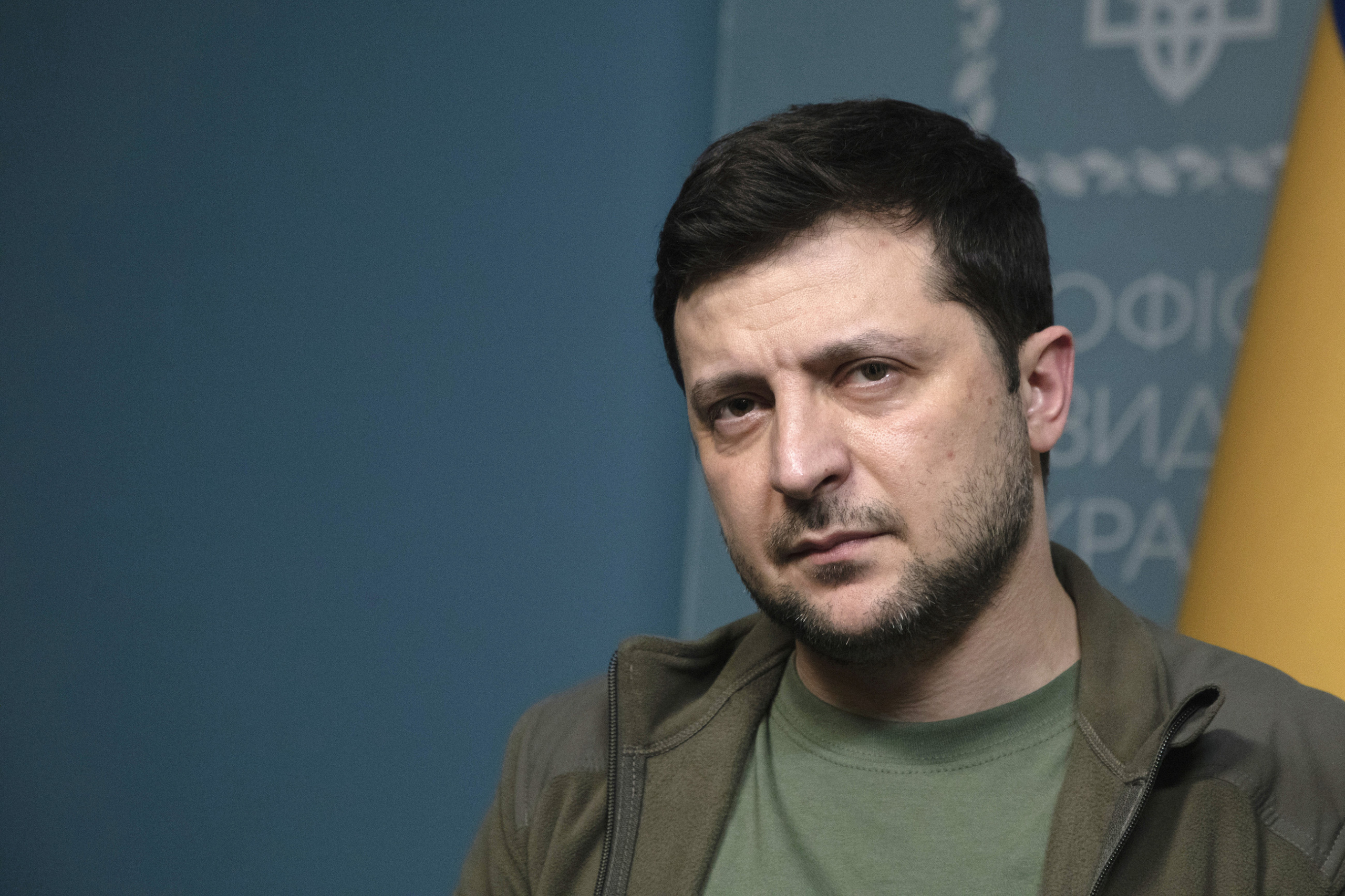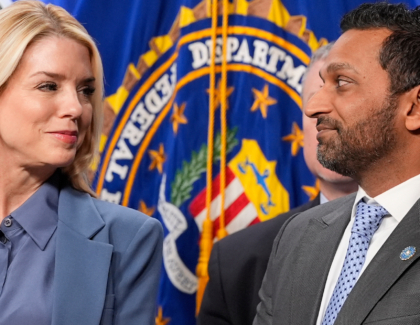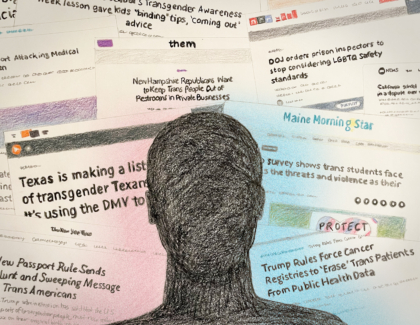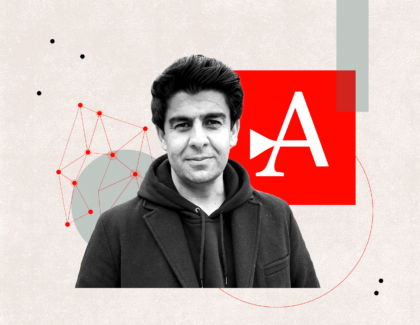Sign up for the daily CJR newsletter.
Last month, France 24 published a short film on the work of journalists who have reported on corruption in Ukraine—and who, the broadcaster said, have lately “redoubled their vigilance” after “holding off for the first few months of Russia’s full-scale invasion” of the country in 2022. Among others, the broadcaster met with Yuriy Nikolov—a “famous muckraker” who broke open a scandal involving military catering contracts that, eventually, contributed to the removal of the defense minister—and traveled with him to an anti-corruption seminar in the snowy Carpathian Mountains. Nikolov said that, as he weighed whether to pursue the story given the attendant risk of “discrediting Ukraine,” he had stood on his balcony in Kyiv and witnessed its air defenses shoot down a rocket. “I thought, ‘I want us to have more air defenses,’” Nikolov said. “They cost money. If money is being stolen, we won’t get the rockets.”
Last weekend, at least two men turned up at Nikolov’s home and tried to break down the door. He wasn’t there at the time—he was watching snooker at a friend’s house, he said—but his elderly mother, who is convalescing following cancer treatment, was. The men called Nikolov a “provocateur” and a “traitor,” according to a video of the incident that was subsequently uploaded to the social network Telegram by a channel supportive of Volodymyr Zelensky, Ukraine’s president. According to the same channel, the perpetrators were soldiers who had recently returned from the front and wanted Nikolov to sign up to serve. Nikolov suggested that the incident may have been linked to his recent criticism of Zelensky, whom he accused of failing to communicate difficult news about the war to the Ukrainian people and likened to a “draft dodger.”
Then, two days later, a YouTube channel of murky provenance posted a video that allegedly showed camera operators at Bihus.Info, an independent news site (whose reporting on corruption was also highlighted in the France 24 report), taking drugs in private accommodations that they had rented for New Year’s celebrations; the channel also posted phone conversations in which Bihus.Info staffers discussed obtaining MDMA and cannabis. Management at Bihus.Info said that they had fired those responsible, branding their conduct “a disgrace,” but said that the more important issue was how the recordings had been obtained—the site claimed, citing an initial analysis of the recordings, that its staff must have been under surveillance for more than a year. Denys Bihus, the site’s founder, alleged that government agencies could be responsible.
Prosecutors in Kyiv claim to have identified the men responsible for harassing Nikolov, while Ukraine’s security services say they are investigating the Bihus.Info surveillance. In an address to the nation last week, Zelensky insisted that action was being taken—a message he reiterated in an interview with Britain’s Channel 4 over the weekend—and that “any pressure on journalists is unacceptable.” Still, his word alone has not been enough to reassure journalists who have feared for a while that press freedom is in decline on his watch. Before Zelensky spoke last week, Olga Rudenko, the editor in chief of the Kyiv Independent, said that his response to the harassment of Nikolov would be a “litmus test,” and that any failure to react would constitute a “green light to attack journalists.” Meanwhile, a coalition of media organizations put out an unusual statement attesting to the “systematic” targeting of journalists by pro-government Telegram accounts—targeting that has now crossed a line into physical threats. Various journalists suspect that at least one of the accounts in question is directly linked to Zelensky’s office (though this is hard to prove, and Zelensky’s office has denied it).
This isn’t the first time that Ukrainian journalists have complained about their treatment at the hands of their own government since Russia invaded two years ago next month; nor is it the first time that those complaints have found an airing in major Western news organizations. Still, such complaints, in the past, have often been anonymous or offered with palpable reluctance—understandably so, given the stakes involved. This time, they feel louder.
“There has been a legitimate fear in the broader community that airing dirty laundry could play into Russia’s hands by making Ukraine appear divided or unable to tackle corruption,” Andrey Boborykin, the chief executive of the major independent news outlet Ukrainska Pravda, told me in an email. “However, the recent escalation of harassment and intimidation against journalists appears to be a tipping point. The fundamental role of independent media in a democracy is being threatened, and staying silent may do more long-term damage than speaking uncomfortable truths. The lines have clearly been crossed by those in power, and the resulting outcry from journalists is understandable and justified.”
In the weeks after Russia invaded, Ukrainian media largely coalesced around a need to project unity—as Yana Lyushnevskaya, a Ukraine analyst at the BBC’s Monitoring service, put it in a recent essay for Nieman Reports, there was an “unspoken consensus” that coverage should be “defiant and patriotic” and rally behind Zelensky. Major networks pooled their resources into a shared daily programming roster known as the “United News” telemarathon, an arrangement that was soon codified into law and that numerous media-watchers initially saw as a positive development. (One media analyst told The Guardian that it was “the information war equivalent of our anti-aircraft systems.”) Domestic investigations, meanwhile, were largely paused, not least because journalists had their hands full documenting Russian war crimes.
Even during this period, however, there were murmurings of discontent: some observers criticized the telemarathon as thinly veiled propaganda; domestic and international press-freedom watchdogs, meanwhile, criticized Zelensky’s government for various proposals that they saw as insufficiently protective of media independence. In the summer of 2022, two journalists at Ukrainska Pravda said that they had received a barrage of threats after reporting on the dismissal of a government official; according to the Committee to Protect Journalists, the pair were also added to a database maintained by a nationalist website that has published the details of journalists it considers to be “terrorist collaborators” and enemies of Ukraine. Per the Kyiv Independent, as last year dawned, and investigations—including Nikolov’s—into Ukrainian officials resumed in earnest, the pressure ratcheted up some more.
The growing tensions between officials and journalists often concerned access to the battlefield and adjacent areas. When Ukraine liberated the key city of Kherson, at the end of 2022, several journalists went in to document the scene without military authorization and had their credentials revoked; other reporters, including for major Western outlets like the New York Times and The New Yorker, reportedly faced similar punishment, or at least the threat of it, after publishing reports that Ukrainian military bosses perceived as challenging their narrative control. Several journalists said that they were asked to take lie-detector tests during the credentialing process.
Last spring, two military commands published new restrictions on access to the front lines that were surprisingly draconian in their scope, leading critics to accuse officials of treating journalists like a branch of the army. (Critics pointed, too, to claims that staffers working with the telemarathon were given preferential access to otherwise off-limits zones.) “I’ve covered four wars, and I’ve never seen such a chasm between the drama and intensity and historic import of the reality of the conflict on the one hand, and the superficiality and meagerness of its documentation by the press on the other,” Luke Mogelson, a New Yorker writer who has filed a series of striking dispatches from Ukraine, told The Intercept’s Alice Speri last summer. “The main reason, though not the only one, is that the Ukrainian government has made it virtually impossible for journalists to do real front line reportage.”
By the time that Lyushnevskaya wrote for Nieman Reports in November, a new unspoken consensus had taken hold among Ukrainian journalists: “that it is important not just to win the war, but also not to turn into Russia in the process.” This month, criticism of the government’s media policy surfaced in international outlets even before the targeting of Nikolov and Bihus.Info came to light—both the New York Times and Voice of America reported on growing concerns that the telemarathon, which is still going, has long outlived its usefulness and is no longer trusted by either journalists or the wider public. Oksana Romaniuk, a Ukrainian media watcher, told the Times that the joint broadcast is presenting an unduly rosy picture of the state of the war. Romaniuk, too, stressed that Ukrainian TV must avoid becoming like its Russian counterpart.
Compared with Russia, where the free press has been all but crushed, Ukraine has a vibrant and pluralistic media ecosystem—one that has thrived particularly in the past decade, since mass protests led to the ouster of the pro-Russian president Viktor Yanukovych. And in general, wartime restrictions on the press are hardly surprising; indeed, the US press is no stranger to them. Still, as Boborykin told me, “attacks on the press have a long history in independent Ukraine.” Georgiy Gongadze—the founder of Boborykin’s outlet, Ukrainska Pravda—was murdered shortly after founding it in 2000. And oligarchs have taken ownership of important outlets, as I wrote in 2021.
In last week’s news about Nikolov and Bihus.Info, as well as the broader targeting of other outlets, some journalists saw something like a return to the bad old days of the Yanukovych era and before. The difference now, of course, is that Russia is occupying swaths of Ukrainian territory—with devastating consequences for the press in occupied zones—while prosecuting an ongoing war that is still putting journalists at risk. This month, Russian forces shelled a hotel in Kharkiv, wounding at least two reporters for foreign outlets.
With foreign aid for the war effort at risk of stalling—not least from the US—investigative journalists, in particular, face a choice: hold their government to account and risk triggering adverse headlines in donor countries, or withhold information and risk eroding the democracy that the Western world has so far rallied to defend. For Nikolov, at least, the choice isn’t binary—he told France 24 that exposing corruption shouldn’t hinder the flow of aid. “Ukraine needs weapons,” he said. “If we come under occupation, I won’t be able to fight corruption at all.”
Other notable stories:
- In other news about the war in Ukraine, authorities in Russia are set to implement a new law allowing them to seize money or property from those, including journalists, who have been convicted of spreading “fake news” about, or otherwise discrediting, the military; Max Seddon, the Moscow bureau chief at the Financial Times, described the move as a means to punish critics of the war who have left Russia. Elsewhere, Asya Kazantseva, a Russian science journalist, revealed that she has left the country for neighboring Georgia after facing arrest and harassment for her anti-war views, including a politician posting her home address online; Meduza has more. And CNN’s Jake Tapper spoke with Paul Beckett, the editor leading the Wall Street Journal’s efforts to free its reporter Evan Gershkovich, who, as of today, has been jailed in Russia for three hundred days.
- Journalists have descended on New Hampshire (though, as in Iowa before it, perhaps in lesser numbers than in years past) for the state’s presidential primary, which takes place today. Ahead of time, Donald Trump’s campaign barred Vaughn Hillyard, a reporter with NBC News, from covering one of its events on behalf of a pool of other networks; according to the Boston Globe, meanwhile, reporters also struggled to access events for Trump’s remaining rival, Nikki Haley. In other news, New Hampshire’s conservative Union Leader endorsed Haley, describing her as a “fireball from the heavens” to wipe out the “dinosaurs” Trump and Joe Biden. And, in his column for the Mail, Boris Johnson (sort of) endorsed Trump for president—so long as he maintains US backing for Ukraine.
- The LA Times remains in turmoil—yesterday, Sara Yasin, the managing editor, resigned, following two other top editors, Shani Hilton and Kevin Merida, out the door. (Yasin said that she wants to do “something different” with her career.) Major layoffs are expected to hit the LA Times soon; the paper’s Meg James reported last week that a hundred staffers could be cut, though a source tells CNN’s Oliver Darcy that the toll could be “much worse” than that. “While painful cuts have become all too frequent throughout the industry,” Darcy notes, “it’s still rare to watch in real-time as a news organization of The LAT’s stature see its leadership team come apart at the seams so visibly.”
- In other media-jobs news, Lachlan Cartwright, a media reporter at the Daily Beast who has written its Confider newsletter, is joining the Hollywood Reporter; in his last edition, Cartwright confirmed that Confider will continue under his Beast colleagues. Elsewhere, Sam Mewis, a US women’s soccer star who recently retired due to injury, will oversee a new vertical dedicated to the sport at Men in Blazers. And Barton Gellman, a staff writer at The Atlantic who has reported extensively on threats to US democracy, is joining the Brennan Center to help counter them, a move he described as “getting off the sidelines.”
- And Nathan Dahm, a Republican state senator in Oklahoma, proposed the “Common Sense Freedom of Press Control Act,” a bill that would, among other things, require journalists to obtain state licenses and undergo criminal background checks and regular drug tests. John Small, a local editor, told The Oklahoman that the bill is unconstitutional and may be an act of retaliation against “journalists in Oklahoma, myself included, who think the good senator may be a couple of McNuggets short of a Happy Meal.”
ICYMI: Is Ukraine’s information war turning on its own journalists?
Has America ever needed a media defender more than now? Help us by joining CJR today.







